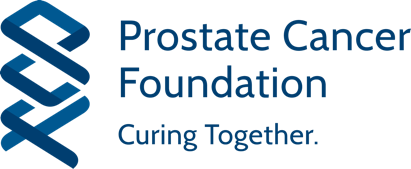About Prostate Cancer
The HLT Texas Shootout supports the Prostate Cancer Foundation with all tournament proceeds. It is rewarding to see the significant progress in the diagnosis and treatment options for Prostate cancer during this time.
 Listed below are the top 10 considerations for preventing Prostate cancer, but the single most important consideration you can make is to visit your doctor regularly for a prostate-screening exam.
Listed below are the top 10 considerations for preventing Prostate cancer, but the single most important consideration you can make is to visit your doctor regularly for a prostate-screening exam.
Please visit the Prostate Cancer Foundation website at www.pcf.org to learn more about risk factors, prevention and the most current treatment options.
To understand how to prevent prostate cancer, one must first understand what causes it. There are four major factors that influence one's risk for developing prostate cancer, factors which unfortunately cannot be changed.
Age: The average age at diagnosis of prostate cancer in the United States is 69 years and after that age the chance of developing prostate cancer becomes more common than any other cancer in men or women.
Race: African Americans have a 40% greater chance of developing prostate cancer and twice the risk of dying from it. Conversely, Asian men who live in Asia have the lowest risk; however when they migrate to the west, their risk increases.
Family history: A man with a father or brother who developed prostate cancer has a twofold-increased risk for developing it. This risk is further increased if the cancer was diagnosed at a younger age (less than 55 years of age) or affected three or more family members.
Where you live: The risk of developing prostate cancer for men who live in rural China is 2% and for men in the United States 17%. When Chinese men move to the western culture, their risk increases substantially; men who live north of 40 degrees latitude (north of Philadelphia, Columbus, Ohio, and Provo, Utah) have the highest risk for dying from prostate cancer of any men in the United States – this effect appears to be mediated by inadequate sunlight during three months of the year which reduces vitamin D levels.
Given the facts above, which are difficult to change, there are many things that men can do, however, to reduce or delay their risk of developing prostate cancer. Why is prostate cancer so common in the Western culture and much less so in Asia, and why when Asian men migrate to western countries the risk of prostate cancer increases over time? We believe the major risk factor is diet – foods that produce oxidative damage to DNA. What can you do about it to prevent or delay the onset of the disease?
OUR MISSION:
To bring together good friends and family to honor the memory of Henry L. Talbert and contribute to research for improved treatments and a cure for Prostate Cancer.


HLT Prostate Cancer Survivors
- Bill Tindell - 52 Years
- Doc Gratz - 27 Years
- Don Moore - 23 Years
- Curtis Lawrence - 23 Years
- Garry Goudy - 21 Years
- Charles Anderson - 20 Years
- Jack Payne - 19 Years
- Bill Hayward - 16 Years
- Dave Wickham - 16 Years
- Doug Irwin - 14 Years
- Ray Biase - 14 Years
- Dan Wegmann - 14 Years
- Jim Sheppard - 13 Years
- Mark Rainer - 13 Years
- Barry Bruner - 13 Years
- Norm Klein - 12 Years
- Dan Funyak - 9 Years
- John Kelleher - 9 Years
- John Vallala - 9 Years
- Norm Muttitt - 8 Years
- Dan Hargraves - 7 Years
- Woody Berry - 6 Years
- Richard Carlson - 6 Years
- Buck Cameron - 6 Years
- James Horner - 6 Years
- George Riba - 4 Years
- Jeff Stark - 4 Years
- Matt Schnitzius - 3 Years
- Stewart Carrico - 2 Years
- John Studnicky - 2 Years
- Mike Smith - 2 Years
- Tim Tindell - 2 Years
- Memory of Caird Kidston, 12/19/2006
- Memory of Dave Helterbran, 9/1/2015
- Memory of John Mammen, 6/6/2017
- Memory of Craig Vecchiola, 6/18/2018
- Memory of George Crosset, 6/16/2021
